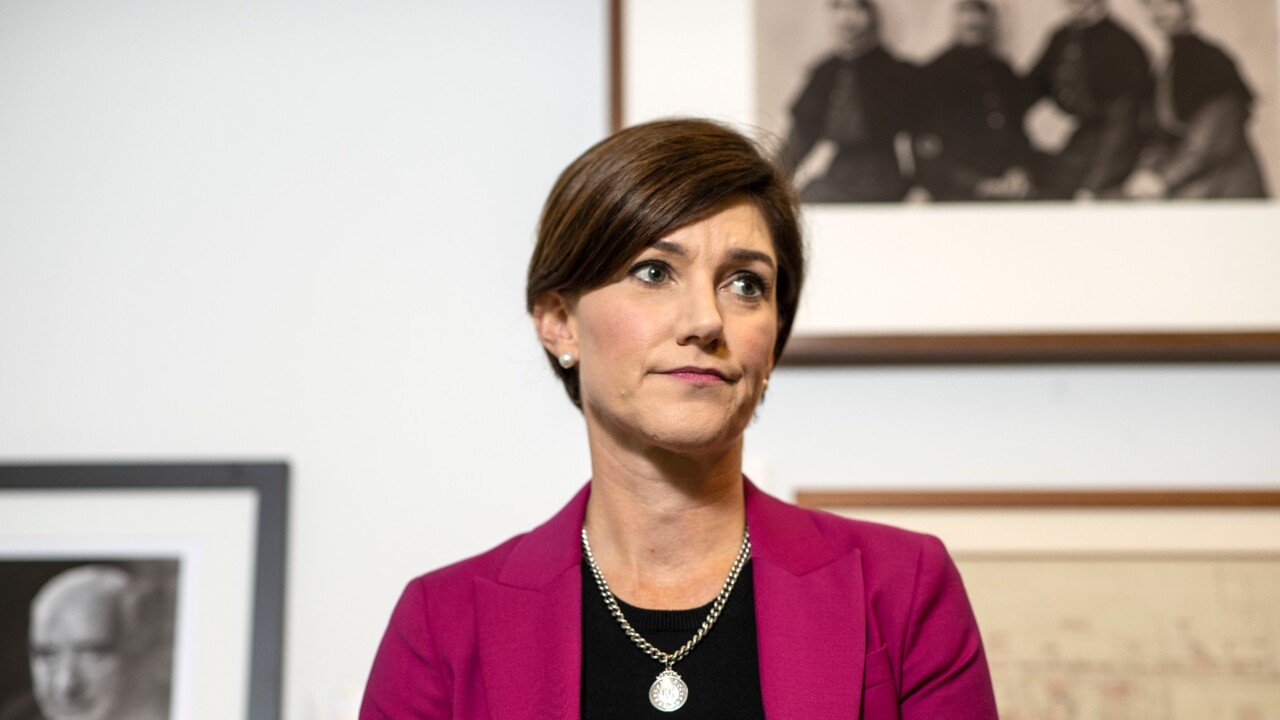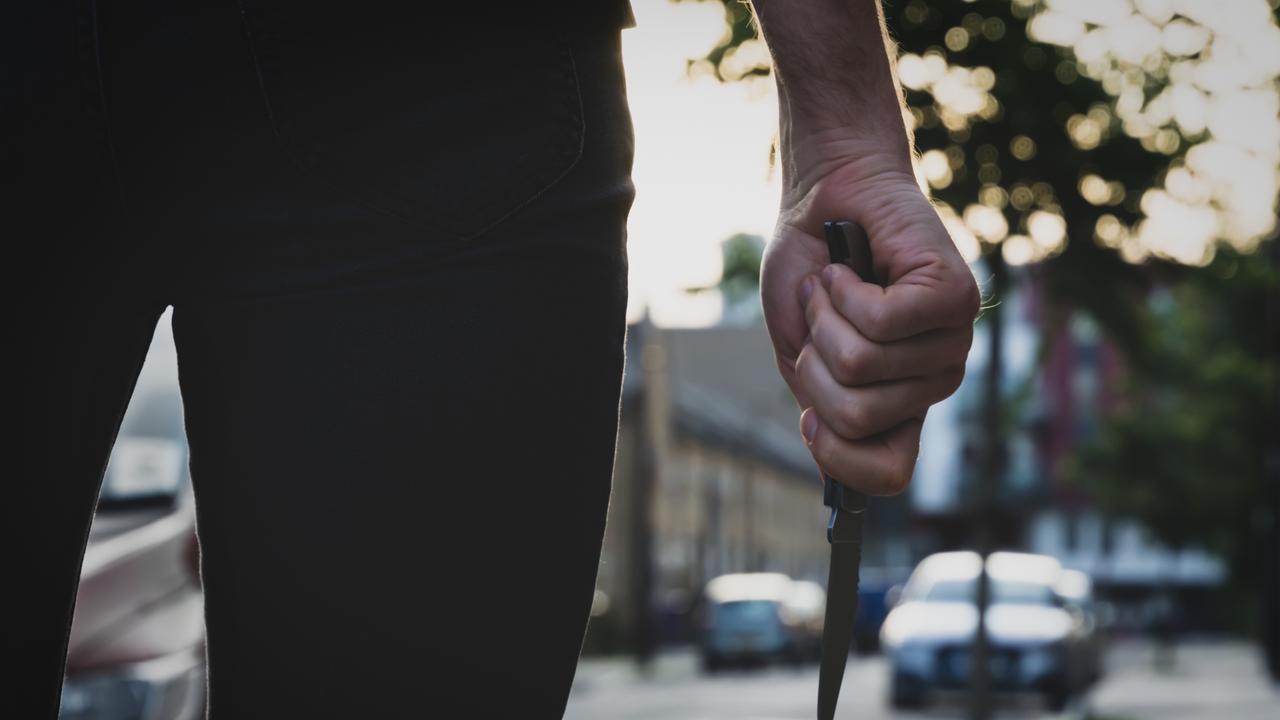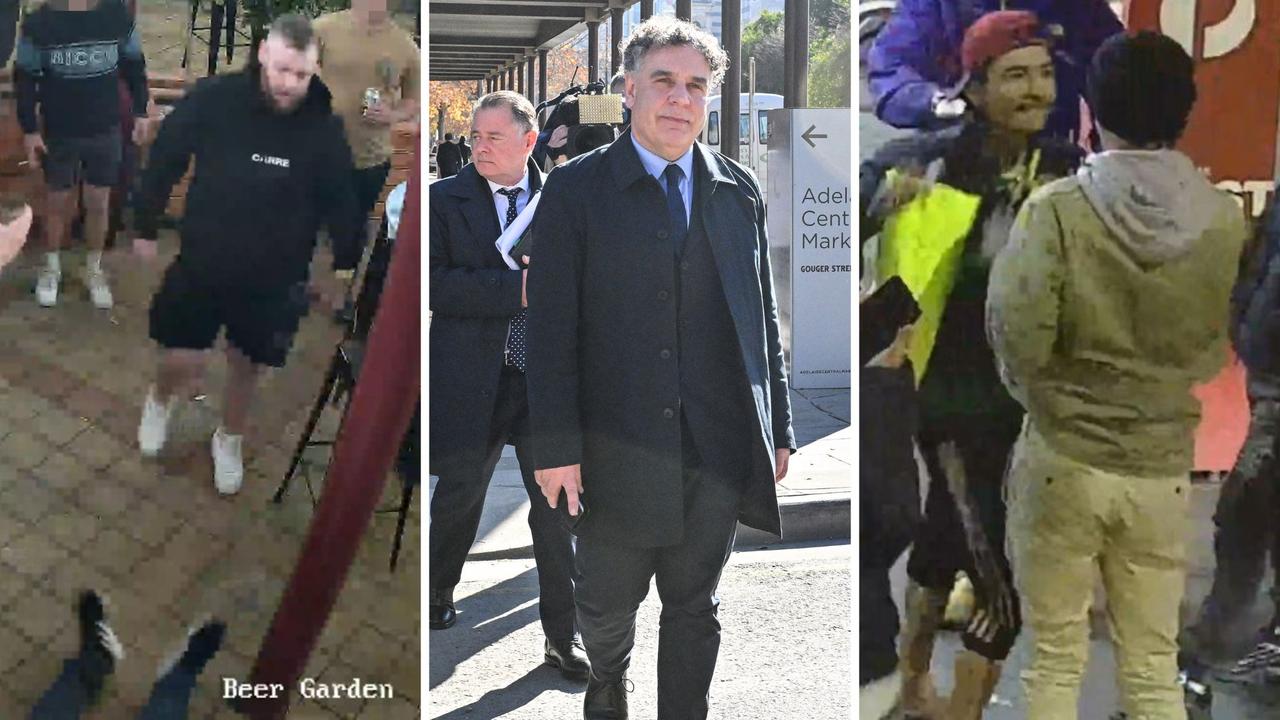Stalked, trolled, harassed, burnt out … so why is Nicolle Flint eyeing a political comeback?
Harassed, stalked and burnt out by relentless attacks – but former Liberal MP Nicolle Flint is back in the political ring and may well end up taking on a newly independent MP.

SA News
Don't miss out on the headlines from SA News. Followed categories will be added to My News.
It took a year and a few life changes but Nicolle Flint is back in the game. In 2021 she announced she would not recontest her seat and last year stepped away from federal politics, angry and exhausted.
She was finished, burnt out and could not endure the gendered abuse aimed so personally at her. In her last speech to parliament as the Liberal member for the South Australian seat of Boothby, she let fly.
“Men on the left, some of whom are public figures of influence, have done the following: they’ve stalked me, suggested I should be strangled, criticised the clothes I wear and the way I look, called me a whiny little bitch …,” she said. There was more, most of it too extreme to print, but which included threats that she should be raped, killed, or should kill herself.
She felt done with politics and walked away from public life.
Then, last January came the first flickering signs of life as Flint spoke out in support of another woman being mercilessly abused.
READ MORE: Speirs wants Flint on Libs’ frontline

Jelena Dokic, the former tennis champion turned Channel 9 commentator at the Australian Open, had spoken about abuse by her father and her subsequent mental difficulties. Now she was being trolled, ridiculed and fat-shamed for the way she looked.
Flint was so angry she wrote a column for the Herald Sun defending Dokic and calling for legislation that would force the tech giants to ban trolls, and licence social media users to destroy the abuser’s biggest asset – their online anonymity.
“Jelena has been very public about her mental health issues and the violence she has suffered in her life, and about the reason why her weight fluctuates – and people were saying the most horrendous things,” Flint says.
She rediscovered how rewarding it felt to speak out against a wrong and she began to think she should do more.
“I thought, ‘Oh, I miss this’,” she says.
“I missed having a voice, I suppose, but it was about standing up for people who needed to be defended and it really made me think I have unfinished work here. I know how to communicate what needs to happen on this issue and if I don’t keep standing up for women then who will?”
BACK IN THE GAME
Now she is right back where she began, as a volunteer, grassroots Liberal Party activist, and she has just been elected chairman of the state’s Liberal Party Rural and Regional Council, a position she held from 2014-2016 before entering federal politics. Significantly, it puts her on to the Liberal state executive where she can engage in policy work for state- based regional and rural communities.
Since leaving parliament she has spent more time working with her parents on the farm in the southeast; she loves it and describes it as a beautiful part of the world.
The next state election will be in March 2026 which gives her time to rebuild her standing and secure preselection in the southeast seat of MacKillop, the region she has known and loved all of her life and in a seat which is unexpectably unrepresented by a Liberal.
This once Liberal jewel held by Nick McBride since 2018 became independent in July after McBride left the party claiming factional “dark forces” created an environment of disunity and backstabbing.
It is too early for her to show her hand in what are the relatively early stages of the election cycle, but she is certainly not ruling out running again, this time for a state seat, if the party wants her. Her ambition is still untested and there has been speculation – with one notable voice, the Advertiser’s editor at large Paul Starick – that Flint could be a potential future leader of the state party that has struggled for traction in the shadow of the Peter Malinauskas-led Labor.
“In Mackillop, Liberal members in particular, but people in the community are really disappointed – and some of them would use stronger language than that – that their member has decided to resign,” Flint says. “I think people, especially Liberal Party people, are devastated as it is one of the party’s safest seats within South Australia, and probably nationally. So, there is a strong Liberal sentiment there.”
Flint, 45, says she is flattered by the “very generous suggestions” at what her future in the South Australian Party might look like but at the moment her sole focus is her volunteer role on the council.
“Whatever I can do to assist, I will do,” she says. “So yes, people have suggested it (returning to politics), and if in due course people want me to consider it, then I would but at the moment I am very happy being a humble volunteer and doing my part to support the party.”

HITTING ROCK BOTTOM
It took a lot of reflection and personal pain to get back to this point. Flint’s first term in parliament unfolded just as it should; Labor was critical of her conservative views, as were the Greens, but it was polite and it was civilised.
The way Flint sees it, the trouble started when GetUp in the lead-up to the 2019 election put her on a “hit list” of seven MPs they wanted to unseat, and named her South Australia’s “most backward politician”.
“They heavily targeted me,” she says. “And their behaviour created an anger and aggression in my electorate and in the community that we have never seen before and which I hope never to see again.”
She says Liberals in her electorate told her they were getting calls that disparaged her personally, and in that hostile climate, a man accused of stalking her emerged. He first turned up at a street-corner listening event carrying a huge camera, refusing to be identified and following and photographing her, she says, in an effort to intimidate. Over time, his behaviour began to escalate until Flint says she was genuinely fearful of what he might do next.
“I consider myself a very independent, capable country woman, so after four or five times I confronted him and asked him to stop because it made me feel unsafe,” she says. “He just laughed at me and said ‘I’ll see you again soon, Nicky.’ I mean, who calls me Nicky?”
At this point, she went to the Australian Federal Police who took the complaint seriously and paid him a visit. Flint says he laughed at them too, saying he had done nothing wrong and, technically, he was correct. Until he broke the law, there was nothing they could do.
He continued turning up at events uninvited, photographing Flint and, she says, acting oddly, with his behaviour escalating.
“So, Alex Antic, who was just a (Senate) candidate at the time, bless him, looked up the South Australian Criminal Law Act and thought his behaviour now amounted to stalking,” Flint says. “He said, ‘We’re going to the police’ and he sat with me at the Sturt police station and they took it very seriously.”

Two weeks before the election, SA police issued the man with a stalking order after an incident in which he went from window to window of a hall in Blackwood, taking pictures of everyone inside. Police told him if he went near Flint again, he would end up in court and the incidents stopped. The man denied any wrongdoing. That was April, 2019.
But that didn’t mean Flint had time to rest.
In May, her office was defaced with sexist, derogatory and abusive graffiti, and a week later she was re-elected to Boothby. “I have survived,” she thought. “I stupidly thought, ‘I got through, they did not beat me’ and I continued to work incredibly hard for my community,” she says.
But it didn’t stop. There were run-ins with media and other high profile figures. She was aggressively trolled online and she – unwisely, she realises – fought back.
“It was the intimidation of a woman,” Flint says. “The trolling was the worst I had ever experienced, to the point where I closed down my Facebook page. It was a pile-on; they flood your page, you have to delete it or whatever, it takes hours and it’s relentless. It is very hard to stop that while it is happening.”
It was also soul destroying. Flint says she tried to respond seriously through the prism of policy but it became too much and for her own mental health and physical safety, she decided to leave. It wasn’t just the trolling and the sexist attacks; it was also the stalker, and the repeated Extinction Rebellion protests at her electorate office that she says led her to feel physically unsafe and unable to do her job.
She was unaware of this at the time, but a medical issue was wearing her down. Flint in the past few years has been vocal about suffering from endometriosis, the debilitating and painful condition in which endometrial tissue that lines the uterus grows outside it. Her treatment included slow-release progesterone which, looking back, made her untypically emotional – she cried in parliament more than she would have liked – and undermined her resilience.
“I look back and I did so much crying in parliament and (people) were always attacking me for crying and I was genuinely distressed because of everything I had been through,” she says. “But I was actually really depressed and barely functioning because of what these hormones were doing to me.”
Once out of politics, there was another major reckoning that changed her thinking about the future. Flint had always hoped to have a family but that would not be the case due to reasons relating to her endometriosis. “I now know that I won’t be able to have a family so I have had to naturally reassess what I want to do with my life,” she says.
Discovering you will be childless is no small thing and Flint read books on other people’s experiences to help understand hers, including Jody Day’s Living the Life Unexpected. She talks about the shadow life of women, the subconscious waiting for family that women think will one day be theirs, and the pain of realising it will not. “You really have to reassess what you’re going to do next because life’s not going to be what you imagined,” Flint says. “It will be a lifelong grief that I will carry but you reassess what you want to do next.”
As part of her treatment, Flint changed her medication and almost immediately felt better. The hormones she was on were preventing her from functioning normally even though she was oblivious at the time.
“It was only after, that I realised what a huge impact it had on me, physically and mentally,” she says. “My message to women – and it’s not just about endometriosis – is if you are on any hormonal treatment and you’re not feeling like yourself, maybe you should look at what hormones you are on.”
GETTING BACK ON THE HORSE
Looking back, she has no regrets about resigning. She was exhausted and at the time it was the right thing to do. Yet, she does not want her experience to put off other conservative women from entering politics. She is continuing through her Sky News columns and television commentary to fight for safe spaces for women on social media so they can participate in public debate, and is outraged that so little has been done to hold the big tech companies to account.
She also suggests amending the Sex Discrimination Act to include women as a “protected group” from harassment, intimidation and abuse. “Women are being silenced,” she says. “Leigh Sales no longer has a Twitter account; Lisa Millar no longer has a Twitter account. We have two extremely accomplished female journalists who no longer exist on a key social media platform because of the abuse they received. Women get forced off the social media platforms, not men.”
Flint wants people to be very clear that trolling is not a free-speech issue. Shutting down trolling is about ending the sexualised abuse of women online that occurs relentlessly every day.
“This is something I won’t stop fighting for and speaking out on, and now I am completely capable of doing so, I will keep having this fight because it has to change,” she says.
She is on-air twice a week on Sky News and her Sky column shows her views are as hardline as ever.
She is angry with the federal government for its “disgracefully handled push for an Indigenous voice” and thinks the money and effort being spent on the referendum should be put to much better use. Quoting evidence given to the Senate inquiry investigating missing and murdered First Nations women and children, Flint writes that the nation has failed to help sexually abused Indigenous women, or those whose deaths are written off as suicide when the evidence says something different.


Her Twitter handle warns she is “not ready to make nice”, and on Sky News, as a guest of Peta Credlin and Cory Bernardi, she shares strong, conservative views on a range of topics.
She has also publicly called for a discussion on drag performances, and argues that drag queens should not be able to interact with children because of their overtly sexualised manner. “They usually have highly sexualised names, and it’s completely inappropriate for them to be reading to children,” she said on Credlin’s program.
All of which sounds like someone gearing up for a return to politics.
Flint’s parents are currently away and she is thrilled to be back on the family farm at Kingston where she grew up, in the rural setting that she loves. She says she is deeply passionate about farmers and agriculture and the direction in which the nation is going and accepts Australia’s responsibility as a global citizen to address climate change, depending on how it is done. “I am increasingly concerned about the future environmental ramifications of solar and wind, in terms of decommissioning solar panels and wind turbines in the future,” she says.
“This may well be an environmental disaster if we don’t start to think about where we are putting them and how we decommission them.”
She is encouraged by federal opposition leader Peter Dutton, and state opposition leader David Speirs’ support for factoring in small-scale modular nuclear power plants as part of the solution.

WHY THE LIBERALS CAN COME BACK
Now her return to the Rural and Regional Council gets her on to the Liberal state executive where she can engage in policy work for state-based regional and rural communities.
“In South Australia we have a small population; we don’t have the large regional populations that Victoria and New South Wales and even Queensland do, so we have a different set of challenges,” she says.
Flint says she had very interesting job offers when she retired from politics, in the private sector but also on think tanks. She has focused instead on Sky News. She is not overly daunted by the national Liberal electoral wreckage, which includes a federal party still reeling from the Morrison years, internal turmoil in the Victorian and New South Wales parties; a Liberal government in minority in Tasmania and a resurgent Labor Party in SA.
“Politics is cyclical,” she says. “If you look back to 2007 and the end of the Howard government, we were out of government around the nation. The most senior Liberal in 2008 was Campbell Newman who was Lord Mayor of Brisbane! But look what came afterwards.”
Flint sits firmly in the party’s conservative flank, which would make her a good fit for the once blue-ribbon Liberal seat of MacKillop.
While a good friend and admirer of the maverick Senator Alex Antic, she does not share all of his views, but agrees with at least some of his concerns about the nation’s handling of the Covid crisis: “I am uncomfortable where we landed as a nation with this, and that people lost their jobs over it. That is not who we are. Freedom of choice is fundamental to the Liberal Party’s beliefs, and to Australia, and the Westminster tradition.”
So with an eye to 2026, she is making no promises, but is certainly keeping the door ajar.
“Obviously I want to see the Liberal Party win back government at the state and federal levels, so we can implement policies that will best support the people of South Australia, and the nation,” Flint says. “Ultimately it is up to others to decide if my skills would be of value to the Liberal Party in any other capacity.”
More Coverage
Originally published as Stalked, trolled, harassed, burnt out … so why is Nicolle Flint eyeing a political comeback?



